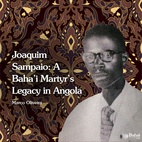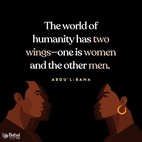The views expressed in our content reflect individual perspectives and do not represent the authoritative views of the Baha'i Faith.
When you’re thinking about yourself, how do you measure your own value? What makes you unique or special or valuable to yourself or others, or even to society as a whole? What are you worth?
Of course, we have many ways to assess the value of ourselves and others.
We can look to our ancestors to determine if someone noteworthy exists in our genetic inheritance — although, for some, noteworthy may refer to unhappy experiences at a particularly harsh time in human history.
We can look to our professions, our educational achievements, or our skill levels.
RELATED: Why Do We Seek Fame?
We can also look to the “how much” question regarding our wealth, beauty, fame, and power to guide our value judgments. Unfortunately, these outward qualities have represented our human value criteria for thousands of years.
Since the pursuit of these things brings varying degrees of success, we, like most of the entire planet, will not make it to the top of the glamour, fame, or talent tree. However, in the normal human pecking order, we still allow these material considerations to define our worth and the worth of others, engaging in a competitive comparing game — my house is bigger than your house, etc.
So, in our little comparative game, what if we find ourselves wanting, simply not enough, by our own and our society’s standards? Where do we go from there? What can we do to prove to ourselves and others that we have value?
The Fruitless Pursuit Of Legend
Would you like to be a legend? This pursuit is a modern twist of the Arthurian legend of the quest for the Holy Grail, the cup Christ drank from at the Last Supper — now, though, it’s for all things that will get us noticed by society. Here’s the thinking: maybe I can never be enough materially, but if I can be seen — by someone, even 15 minutes of fame can do it, which is determined by the number of hits on a social media site. Selfies are taken at the edge of dangerous cliffs and waterfalls, attempts are made to “friend” thousands, and the unprepared seek to climb Mt. Everest. To our discredit, this fruitless pursuit does fuel public interest, which then feeds into more of this sort of activity.
Let’s say one miraculously lives through extreme attempts to be noticed, to count. Why, then, does our quest always seem to lead us to another quest?
Because, these material pursuits may be an ego boost, but they do not instill in us a lasting sense of value.
It’s a metaphorical hamster wheel. The wheel turns faster and faster, but no matter how long we run, we never get to the finish line. If the gains of this material world were really relevant to our internal human value, why would emptiness reappear when novelty disappears? If it really said anything about someone’s intrinsic value, why is it so easy for the rich and famous to lose favor with a fickle public when they fall out of the glamour tree?
So, if, as I propose, the material doesn’t accurately determine the value of ourselves and others, where do we go to find assurance that the lives we are blessed to live count for something?
How about considering new criteria?
First, adjust the focus of our thoughts in alignment with this powerful advice from the Baha’i teachings:
Do not busy yourselves in your own concerns; let your thoughts be fixed upon that which will rehabilitate the fortunes of mankind and sanctify the hearts and souls of men. This can best be achieved through pure and holy deeds, through a virtuous life and a goodly behavior.
Second, identify what actions determine our true value based on these criteria from Abdu’l-Baha’s book The Secret of Divine Civilization:
… is there any deed in the world that would be nobler than service to the common good? Is there any greater blessing conceivable for a man, than that he should become the cause of the education, the development, the prosperity and honor of his fellow-creatures? No, by the Lord God! The highest righteousness of all is for the blessed souls to take hold of the hands of the helpless and deliver them out of their ignorance and abasement and poverty, and with pure motives, and only for the sake of God, to arise and energetically devote themselves to the service of the masses, forgetting their own worldly advantage and working only to serve the general good.
Finally, block out all background noise to the contrary.
RELATED: Taking the First Jump On the Search for Knowledge — with Kate Glastonbury
Think about it this way: what if the most important thing you ever did was only seen by God? This brings to mind a conversation I had with a patient of mine in hospice care. As a teacher, during World War II, when so many fathers were gone, either permanently or for years, she had set up a table so the children could bring in photos and personal items to share memories of their fathers. She spoke with such a sense of satisfaction, for she felt she helped her students handle the grief of their loss. Did anyone note this at the time? Maybe not, but at the end of her life, it was one of the things that mattered most to her.
This had value.
Indiana Jones sought and found the Holy Grail in the film, and the consequences were not pleasant for anyone. Moving on, we can refuse to believe our value lies in the material and the impermanent, adjust our focus, and endeavor to serve humanity in whatever way we can. Therein lies our sense of value, and it doesn’t cost a cent.

















Comments
Sign in or create an account
Continue with Googleor